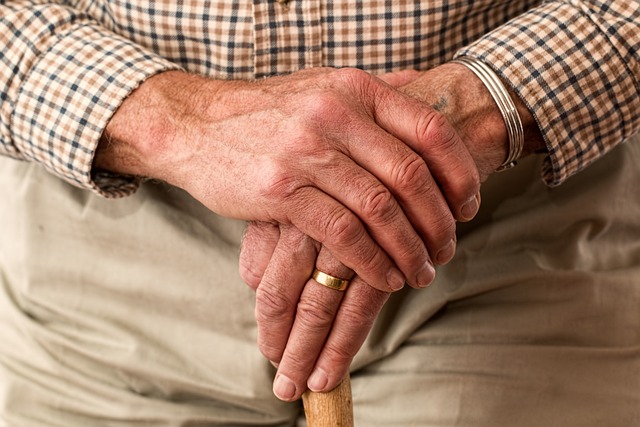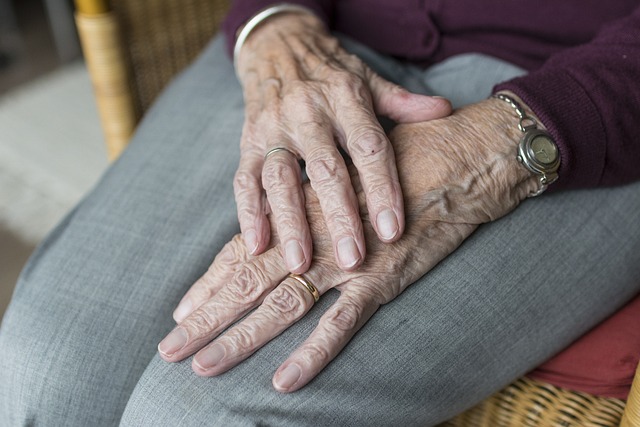Elderly companion services are pivotal in enhancing the mental and emotional well-being of seniors by combating loneliness and social isolation. These services offer tailored interactions and support, aligning with individual interests to keep seniors engaged and purposeful. Trained companions assist with daily routines, promoting independence while providing consistent human interaction vital for maintaining cognitive health. This companionship can alleviate mental health issues like anxiety and depression, and companions often help navigate complex social services and medical systems, reducing stress and improving life quality. Such services are essential in holistic senior care, offering a range of benefits that include safeguarding mental health, maintaining cognitive function, enhancing social skills, and bolstering emotional health for older adults. When selecting these services, it's crucial to consider the companion's compatibility with the senior, their training in elderly care, scheduling flexibility, and clear communication between service providers and families to ensure the best possible mental health outcomes. Elderly companion services, thus, are a cornerstone in supporting seniors' mental health during their later years.
Senior companionship emerges as a vital component in bolstering mental well-being, particularly as individuals age. This article delves into the transformative impact of elderly companion services, highlighting their role in fostering social interaction and providing emotional support tailored to seniors’ needs. Understanding which companion service aligns with an individual’s preferences and lifestyle is crucial for achieving optimal mental health outcomes. By exploring these dynamics, we can better appreciate how such services can enhance the quality of life for our aging population.
- The Role of Elderly Companion Services in Enhancing Mental Well-being Among Seniors
- Benefits of Social Interaction and Emotional Support Through Companion Services for the Elderly
- Selecting the Right Elderly Companion Service: Factors to Consider for Optimal Mental Health Outcomes
The Role of Elderly Companion Services in Enhancing Mental Well-being Among Seniors

Elderly companion services play a pivotal role in enhancing the mental well-being of seniors, offering a multifaceted approach to combat loneliness and isolation, which are significant risk factors for depression and cognitive decline. These services provide companionship that goes beyond mere presence; they involve engaging activities tailored to the senior’s interests and capabilities, fostering a sense of purpose and belonging. Trained companions not only offer emotional support but also assist with daily routines, encouraging independence while providing a reliable source of social interaction. This consistent human contact helps maintain cognitive function and can alleviate symptoms of mental health issues like anxiety and depression. Additionally, the companions often help seniors navigate complex social services or medical systems, reducing stress and empowering them to lead more fulfilling lives. Through these personalized interactions, elderly companion services contribute significantly to the holistic health and happiness of older adults, making them an invaluable resource in the senior care continuum.
Benefits of Social Interaction and Emotional Support Through Companion Services for the Elderly

Engaging in social interaction is a cornerstone of mental well-being, particularly for the elderly who may be at risk of isolation due to age-related limitations or the loss of peers. Elderly companion services offer a tailored solution to this challenge by providing seniors with a consistent and reliable presence that fosters meaningful connections. These companions are trained to engage with individuals in ways that stimulate cognitive function, encourage social skills, and promote emotional health. The presence of a companion can lead to increased confidence, reduced feelings of loneliness, and enhanced quality of life for seniors. Moreover, the support offered by elderly companion services extends beyond casual interactions; it includes assistance with daily activities, ensuring a safe and nurturing environment for the individual to thrive. This holistic approach not only improves the senior’s mental state but also supports their physical well-being, contributing to an overall sense of purpose and fulfillment. The benefits of elderly companion services are manifold, encompassing both the practical aspects of daily life and the profound emotional support that is crucial for maintaining mental health in one’s golden years.
Selecting the Right Elderly Companion Service: Factors to Consider for Optimal Mental Health Outcomes

When considering elderly companion services for enhancing mental well-being, it’s crucial to evaluate several key factors to ensure a harmonious and beneficial match between the companion and the senior. The right companion can significantly improve an elderly individual’s quality of life by providing companionship, emotional support, and engagement in social activities. A compassionate and patient companion who aligns with the senior’s interests and lifestyle can offer meaningful interactions that combat feelings of loneliness and isolation, which are detrimental to mental health. It’s important to assess the training and background of the service provider, as specialized knowledge and experience in elderly care can lead to better understanding and management of any cognitive or physical challenges the senior may face. Additionally, the availability of the companion and the flexibility of their scheduling should align with the needs of the elderly person to ensure consistent and reliable support. Communication between the service provider and the family is also a pivotal aspect, as it facilitates an ongoing exchange of information regarding the mental health status and any changes in the senior’s condition or preferences. By carefully considering these factors, families can select elderly companion services that are most likely to achieve optimal mental health outcomes for their loved ones.
In conclusion, the integration of elderly companion services plays a pivotal role in fostering mental well-being among seniors. The benefits of social interaction and emotional support provided by these services are manifold, contributing to a more enriched and fulfilling life for older adults. When selecting a companion service, it is crucial to consider factors that align with the individual’s personal preferences, health status, and lifestyle to achieve optimal mental health outcomes. As society evolves, recognizing the importance of social connections at every age becomes increasingly vital. Elderly companion services not only bridge gaps in social interaction but also offer a pathway to improved psychological health for our aging population, making them an indispensable resource in the tapestry of senior care.
